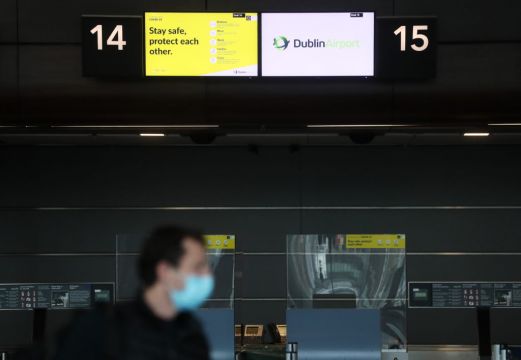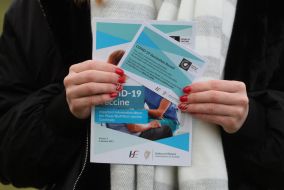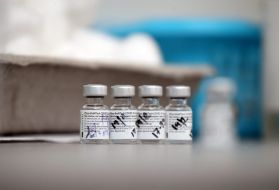Public health expert Dr Gabriel Scally has said there is still “plenty of virus circulating” and that “an amazing amount of travel” is happening as latest figures show hospital cases are continuing to fall.
Dr Scally said Covid-19 is an “extraordinarily dangerous virus and we can’t afford not to take precautions and get it under control”.
He told RTÉ’s Saturday with Katie Hannon that various countries are experiencing a surge in cases and that Ireland “can’t take for granted that it’s going to be a smooth downward path”.
On @SaturdayRTE with Katie Hannon, I suggested 'green zones' as a way forward. Here is a neat explanation of how 'Green Zones' can open up areas that have stopped local Transmission. "It would never work here!" is just not a good enough response. https://t.co/ODnAHiCjvm
— Dr Gabriel Scally (@GabrielScally) March 13, 2021
“I think the other thing to remember is, it was a heck of a peak that was reached in January and February,” he said.
“It was avoidable but decisions were made and we had the huge spike of cases and we’ve to get down from a very high peak and that is difficult because it takes time and commitment and observance of difficult rules. I can understand a lot of the frustration about that but it’s got to be got down.”
Meanwhile, the number of people in hospital with Covid-19 has continued to fall to 340, according to the latest figures from the health service.
There were 86 patients with the virus in intensive care on Friday night.
Connolly Hospital Blanchardstown in Dublin has 40 Covid-19 cases, the highest number in the country, followed by the Mater Hospital (31) and St James’s Hospital (31).
The HSE’s daily operations figures show there are 37 intensive care beds available for adults and 6 for children.
More than 400,000 people in the Republic have now had their first dose of a coronavirus vaccine.
The latest figures from the HSE show a total of 570,391 jabs were administered up to March 10th – 409,662 first doses and 160,729 second doses.
More than 117,000 people aged over 70 (Cohort 3 in the vaccine priority list) have received their first dose.
Paul Reid, chief executive of the HSE, said on Saturday that the supply of vaccines “will improve” and that “the most vulnerable have been protected and prioritised.”
“The oldest, in nursing homes and community, now at less risk. Our healthcare workers can look after our sickest, feeling safer. The right approach for now,” Mr Reid said on Twitter.







